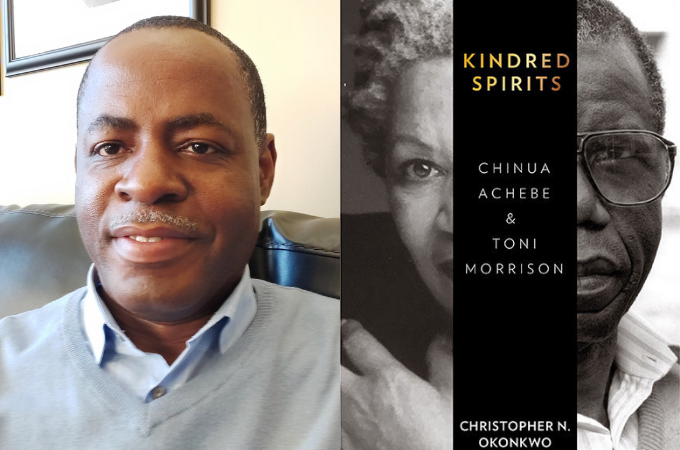
Christopher Okonkwo’s second book is a love letter to two of the most celebrated black writers today. Kindred Spirits: Chinua Achebe and Toni Morrison, which was published on February 15 by the University of Virginia Press, is a beautiful, well-researched, and brilliantly argued account of the many ties that bind Chinua Achebe and Toni Morrison. It explores their friendship and places their writings in conversation.
For those who missed it, last week we featured an interview with Okonkwo, in which he addresses the themes and inspirations behind the book and also connected the book to Black History Month.
Kindred Spirits is the first book-length comparative study of Achebe and Morrison’s work. The book opens with an introductory chapter, in which Okonkwo details the personal moments that attest to Achebe and Morrison’s friendship. The moments detailed include shared space in public talks, interviews, and speeches at award ceremonies that clearly show the mutual respect and admiration that both authors had for their work. For example, Okonkwo mentions the 2001 conversation at Bard College where Achebe names Beloved as the one book he’d take to a deserted island, as well as Morrison’s remarks on African authors like Achebe and Camara Laye deeply influencing her work.
The parallels in their creative universe go far beyond their friendship. Kindred Spirits examines their renowned trilogies: Achebe’s Things Fall Apart, Arrow of God, and No Longer at Ease and Morrison’s Beloved, Jazz, and Paradise. Chapter one sets up notions of “the village,” “the village novel,” and “the village city-narrative” and how they shape Achebe and Morrison’s fictional worlds. Chapters two, three, and four compare individual novels in the trilogies across themes of colonization and slavery using iterations of “the village” framework as the connecting thread.
Scholars who work on Morrison and Achebe have written a lot about their influences on other writers but have some how not seen the need to dedicate a book-length study placing their work in conversation. Okonkwo saw that gap and decided to fill it. Kindred Spirits provides a rich, immersive examination of these two literary giants together, leaving ample room for more work on their connections to be explored in the future.
Jeanne-Marie Jackson, literature professor at Johns Hopkins University, praises the book for being timely and for expanding the frames of linking African/Diaspora writing. She remarks: “Okonkwo writes with passion and verve as he unearths the think roots connecting these luminary figures with one another and to a deeper sense of Afro-diasporic tradition. A timely and important intervention.” We couldn’t agree more.
As we conclude Black History Month here in the U.S, we want to continue thinking about Diasporic connections outside the month of February and deeply consider the ways that global Black cultures interact, support, and connect with one another.
BUY Kindred Spirits: University of Virginia Press | Amazon


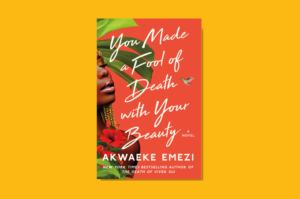

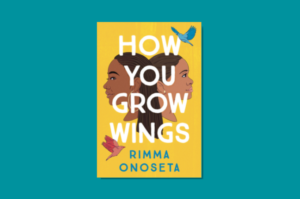
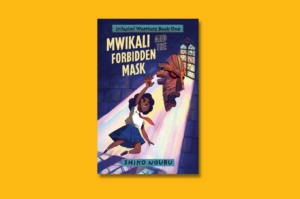

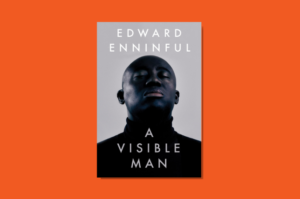

COMMENTS -
Reader Interactions